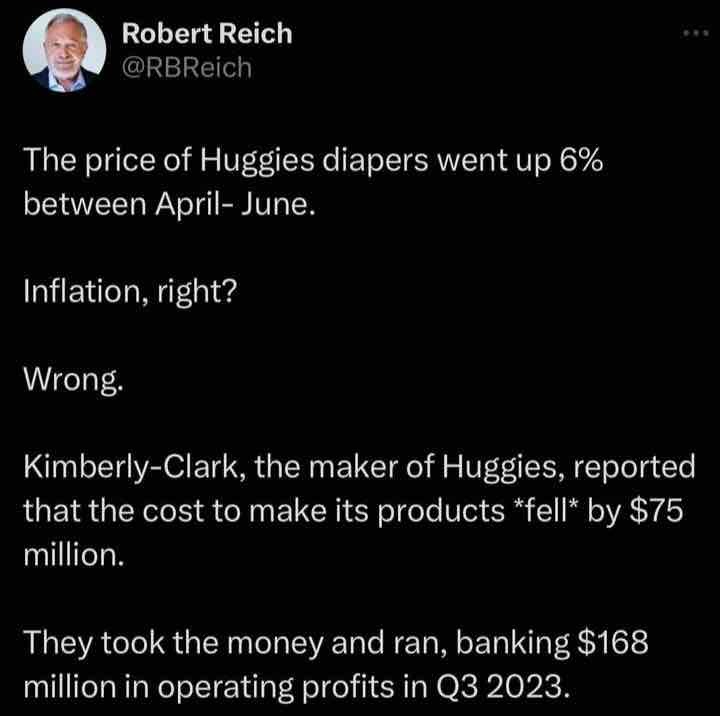Wow, privilege. I can’t believe people don’t want to be gouged out the ass by companies raking in record profits while gaslighting everyone about inflation.
Also pretending that shrinkflation isn't happening.

Fuck all the diaper companies atleast in canada they are all the same price
I mean no shit. My rent goes up every year, now food and everything else has too. No shit people want prices to go down, but woops, thanks capitalism
Or pay us more. You won't do that though so stop trying to bleed a fucking stone dry. Can't have infinite growth in a finite world and we're getting close to that breaking point
This is the best summary I could come up with:
A separate report showed that while Americans slowed their retail purchases in October from the previous month’s brisk pace, they’re still spending enough to drive economic growth.
Adjusted for inflation, median weekly earnings — those in the middle of the income distribution — have risen at just a 0.2% annual rate from the final three months of 2019 through the second quarter of this year, according to calculations by Wendy Edelberg, a senior fellow at the Brookings Institution.
Charles, a call center representative with a company that handles customer service for the Medicare and Affordable Care Act health plans, received a raise to $18.21 an hour two years ago.
Rising prices have been a key driver of a wave of strikes and other forms of labor activism this year, with unions representing autoworkers, Teamsters and airline pilots winning sizable pay increases.
But poorer people typically face a higher inflation rate, according to economic research, because they spend a greater proportion of their income on such volatile expenses as food, gas and rent — items that have absorbed some of the biggest price spikes.
“At the lower end of the income distribution, people got somewhat higher pay raises,” said Anthony Murphy, a senior economic policy advisor at the Federal Reserve Bank of Dallas.
The original article contains 1,354 words, the summary contains 202 words. Saved 85%. I'm a bot and I'm open source!
United States | News & Politics